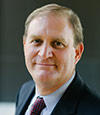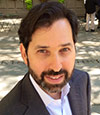The Reed College Public Policy Lecture Series continues its annual tradition of bringing compelling speakers to campus to address important issues of politics, policy, and political change.
Gender, race, equity, equality, and how these issues are communicated and perceived will play a major role in the outcome of 2016 elections. How will campaign messaging and media coverage affect the most contentious and decisive election in the modern era? In the best traditions of Reed’s commitment to inquiry, the 2016 PPLS will slow the news cycle long enough to understand these important issues.
All events are free and open to the public. PPLS is sponsored by the Elizabeth C. Ducey Political Science Lecture Fund.
Regina Lawrence

“Ready for Hillary? Gender and Media in the 2008/2016 Elections”
Monday, September 12
7 p.m., Vollum lecture hall
Regina G. Lawrence offers a framework for analyzing Hillary Clinton's 2016 campaign, particularly with the growth of social media in political campaigning. She explores how Clinton came so close in 2008 to breaking the ultimate glass ceiling in US politics, why she fell short, and what her experience portends for future female candidates in the media-saturated game of presidential politics.
Lawrence is a professor in the School of Journalism and Communication and Director of the George S. Turnbull Portland Center and the Agora Journalism Center at the University of Oregon.Her current research focuses on political reporters’ use of social media to cover presidential politics, on female candidates’ communication strategies and news coverage of women politicians, and on media and civic engagement.
Nathan Persily

"The Campaign Revolution Will Not Be Televised"
Tuesday, September 27
7 p.m., Vollum lecture hall
Campaign finance law and policy is predicated on television as the primary mode of political campaigning. Once campaigning moves more fully to the internet, it becomes almost impossible to regulate and further exacerbates current polarizing campaign finance trends in undisclosed spending by outside, unaccountable groups. With government rendered largely impotent because of both Citizens United and these technological developments, attention should turn to the major internet platforms (e.g., Google, Facebook, and Twitter) as the primary locus for self-regulation of the campaign finance system. These platforms already regulate speech (e.g., hate speech, impersonation, incitement) in ways that would violate the First Amendment if passed by government.
Nathaniel Persily is the James B. McClatchy Professor of Law at Stanford Law School, with appointments in the departments of Political Science and Communication. Professor Persily’s scholarship and legal practice focus on American election law or what is sometimes called the “law of democracy,” which addresses issues such as voting rights, political parties, campaign finance, redistricting, and election administration. His current work, for which he has been honored as an Andrew Carnegie Fellow, examines the impact of changing technology on political communication, campaigns, and election administration.
David Folkenflik

"Yuge Ratings, Yuge Problems: The Media and the Race for the White House"
Thursday, October 6
7:00 p.m., Vollum lecture hall
Based in New York City, David Folkenflik is the media correspondent for NPR News. His stories and analyses are broadcast on the network's news magazines, such as All Things Considered, Morning Edition, and Here & Now, and are featured on NPR's website and mobile platforms. Folkenflik's reports cast light on the stories of our age, the figures who shape journalism, and the tectonic shifts affecting the news industry. He profiled the Las Vegas columnist who went bankrupt fending off a libel lawsuit from his newspaper's new owner; conducted the first interview with New York Times executive editor Dean Baquet after his appointment; and chronicled how the demands of technology have forced the press corps to change how it covers presidential primaries.
Business Insider has called Folkenflik one of the 50 most influential people in American media. Folkenflik is the author of Murdoch's World: The Last of the Old Media Empires and is also editor of Page One: Inside the New York Times and the Future of Journalism. A four-time winner of the Arthur Rowse Award for Press Criticism from the National Press Club, Folkenflik has received numerous other recognitions, and he often appears as a media analyst for television and radio programs in the U.S., the U.K., Canada, Australia and Ireland.
Sunshine Hillygus

"Fool Me Once? Polls and Prediction in the 2016 Election"
Monday, October 10
7 p.m., Vollum lecture hall
Sunshine Hillygus is professor of political science and public policy at Duke University and director of the Duke Initiative on Survey Methodology (DISM). Her research and teaching specialties include public opinion, political behavior, campaigns and elections, and survey methodology. She is co-author of The Hard Count: The Social and Political Challenges of the 2000 Census and The Persuadable Voter: Wedge Issues in Political Campaigns. She has also published articles in Public Opinion Quarterly, Political Analysis, American Journal of Political Science, Journal of Politics, Statistical Science, and Political Behavior, among others. From 2003–2009, she taught at Harvard University, where she was the Frederick S. Danziger Associate Professor of Government and founding director of the Program on Survey Research. She holds a PhD from Stanford University and a BA from the University of Arkansas.